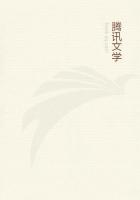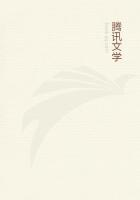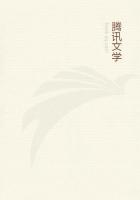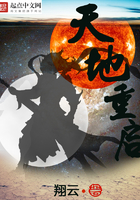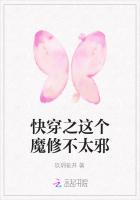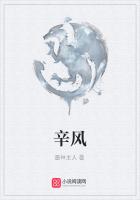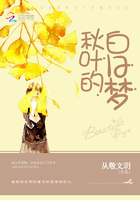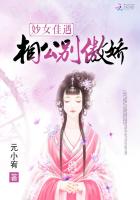For any American boy the fact that his father was running for office would have dwarfed for the time every other excitement, but even apart from personal bias, the year 1848, for a boy's road through life, was decisive for twenty years to come. There was never a side-path of escape. The stamp of 1848 was almost as indelible as the stamp of 1776, but in the eighteenth or any earlier century, the stamp mattered less because it was standard, and every one bore it; while men whose lives were to fall in the generation between 1865 and 1900 had, first of all, to get rid of it, and take the stamp that belonged to their time. This was their education. To outsiders, immigrants, adventurers, it was easy, but the old Puritan nature rebelled against change. The reason it gave was forcible. The Puritan thought his thought higher and his moral standards better than those of his successors.
So they were. He could not be convinced that moral standards had nothing to do with it, and that utilitarian morality was good enough for him, as it was for the graceless. Nature had given to the boy Henry a character that, in any previous century, would have led him into the Church; he inherited dogma and a priori thought from the beginning of time; and he scarcely needed a violent reaction like anti-slavery politics to sweep him back into Puritanism with a violence as great as that of a religious war.
Thus far he had nothing to do with it; his education was chiefly inheritance, and during the next five or six years, his father alone counted for much.
If he were to worry successfully through life's quicksands, he must depend chiefly on his father's pilotage; but, for his father, the channel lay clear, while for himself an unknown ocean lay beyond. His father's business in life was to get past the dangers of the slave-power, or to fix its bounds at least. The task done, he might be content to let his sons pay for the pilotage; and it mattered little to his success whether they paid it with their lives wasted on battle-fields or in misdirected energies and lost opportunity. The generation that lived from 1840 to 1870 could do very well with the old forms of education; that which had its work to do between 1870 and 1900 needed something quite new.
His father's character was therefore the larger part of his education, as far as any single person affected it, and for that reason, if for no other, the son was always a much interested critic of his father's mind and temper. Long after his death as an old man of eighty, his sons continued to discuss this subject with a good deal of difference in their points of view. To his son Henry, the quality that distinguished his father from all the other figures in the family group, was that, in his opinion, Charles Francis Adams possessed the only perfectly balanced mind that ever existed in the name. For a hundred years, every newspaper scribbler had, with more or less obvious excuse, derided or abused the older Adamses for want of judgment. They abused Charles Francis for his judgment. Naturally they never attempted to assign values to either; that was the children's affair; but the traits were real. Charles Francis Adams was singular for mental poise -- absence of self-assertion or self-consciousness -- the faculty of standing apart without seeming aware that he was alone -- a balance of mind and temper that neither challenged nor avoided notice, nor admitted question of superiority or inferiority, of jealousy, of personal motives, from any source, even under great pressure. This unusual poise of judgment and temper, ripened by age, became the more striking to his son Henry as he learned to measure the mental faculties themselves, which were in no way exceptional either for depth or range. Charles Francis Adams's memory was hardly above the average; his mind was not bold like his grandfather's or restless like his father's, or imaginative or oratorical -- still less mathematical; but it worked with singular perfection, admirable self-restraint, and instinctive mastery of form. Within its range it was a model.
The standards of Boston were high, much affected by the old clerical self-respect which gave the Unitarian clergy unusual social charm. Dr.
Channing, Mr. Everett, Dr. Frothingham. Dr. Palfrey, President Walker, R. W. Emerson, and other Boston ministers of the same school, would have commanded distinction in any society; but the Adamses had little or no affinity with the pulpit, and still less with its eccentric offshoots, like Theodore Parker, or Brook Farm, or the philosophy of Concord. Besides its clergy, Boston showed a literary group, led by Ticknor, Prescott, Longfellow, Motley, O. W. Holmes; but Mr. Adams was not one of them; as a rule they were much too Websterian. Even in science Boston could claim a certain eminence, especially in medicine, but Mr. Adams cared very little for science.
He stood alone. He had no master -- hardly even his father. He had no scholars -- hardly even his sons.
Almost alone among his Boston contemporaries, he was not English in feeling or in sympathies. Perhaps a hundred years of acute hostility to England had something to do with this family trait; but in his case it went further and became indifference to social distinction. Never once in forty years of intimacy did his son notice in him a trace of snobbishness.
He was one of the exceedingly small number of Americans to whom an English duke or duchess seemed to be indifferent, and royalty itself nothing more than a slightly inconvenient presence. This was, it is true, rather the tone of English society in his time, but Americans were largely responsible for changing it, and Mr. Adams had every possible reason for affecting the manner of a courtier even if he did not feel the sentiment. Never did his son see him flatter or vilify, or show a sign of envy or jealousy; never a shade of vanity or self-conceit. Never a tone of arrogance! Never a gesture of pride!

